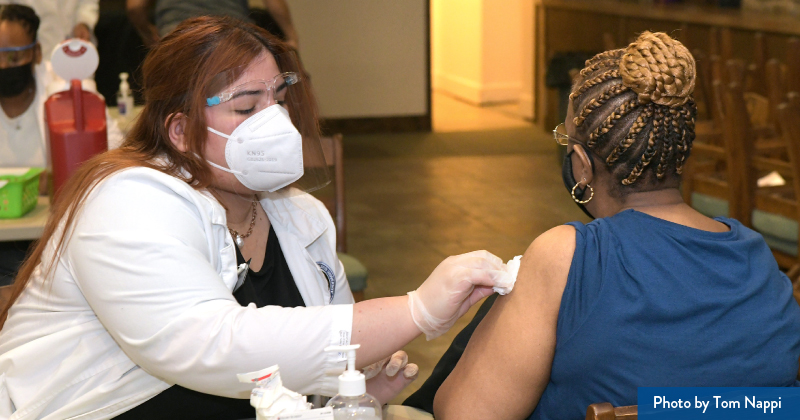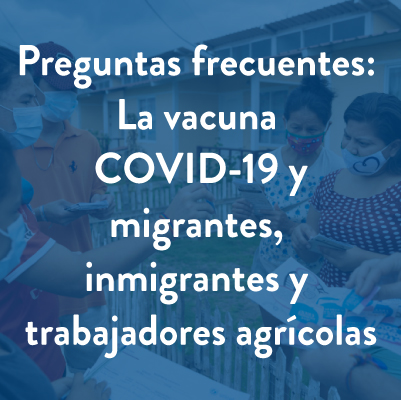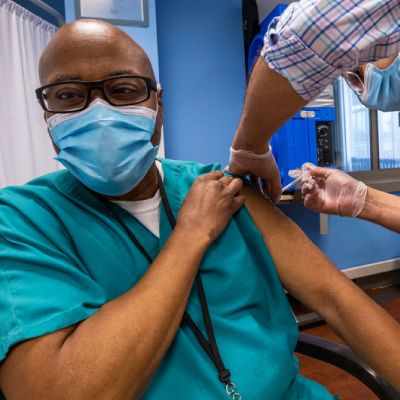- Who We Are
- Clinician Employment
- Publications
- Witness to Witness (W2W)
- El Premio Kugel & Zuroweste a la Justicia en la Salud
- Your Voice Matters: Photovoice Project
Thu, 03/25/2021 | by MCN Admin


Across the country, over two million COVID-19 vaccine doses have been administered at community health centers in the last eight weeks. More than half of those receiving the vaccines at community health centers have been people of color, demonstrating community health centers’ role in beating back the COVID-19 pandemic by supporting populations – like agricultural workers, the unhoused, those without health insurance, low-income households, and migrants and immigrants -- that have been hardest hit by the virus, and who are often the hardest to reach.
At this week’s Virtual Stream Forum, Jim Macrae, MA, MPP, Associate Administrator of the Bureau of Primary Health Care’s Health Resources and Services Administration (HRSA), highlighted HRSA’s partnership with the Centers for Disease Control and Prevention (CDC), which has rapidly expanded care for hard-to-reach and disproportionately affected populations at health centers, from 250 health centers in phase one, to 700 in phase two. This partnership enabled the first two million doses to begin to course-correct the inequities visible in early COVID-19 vaccine efforts.
“Community health centers are the right ones for the job. They have built trust in the communities in which they work, they know their communities best, they know who is most vulnerable and who will be overlooked – and they can act on that,” said Karen Mountain, MBA, MSN, RN, Migrant Clinicians Network’s Chief Executive Officer.
People like migrants who already face barriers to access health care, like lack of transportation, cultural or linguistic differences, lack of access to technology, limited time off, and poor understanding of available and local health resources, have hit these same barriers when attempting to access the COVID-19 vaccine. Community health centers can reduce and remove barriers, relying on local networks and an in-depth understanding of their communities.
Macrae’s exciting summary of health center efforts was given as the open plenary session of the Virtual Stream Forum, an online forum hosted by the National Center for Farmworker Health (NCFH), North Carolina Community Health Center Association (NCCHCA), and Northwest Regional Primary Care Association (NWRPCA). Due to COVID-19, the three typically in-person stream forums, held on the West Coast, in the Midwest, and on the East Coast each year, that share promising practices and advance efforts to serve migrant and seasonal agricultural workers, were combined into one all-digital multiday conference. Learn more at http://www.ncfh.org/virtual-forum.html.
Like what you see? Amplify our collective voice with a contribution.
Got some good news to share? Contact us on our social media pages above.
Return to the main blog page or sign up for blog updates here.







